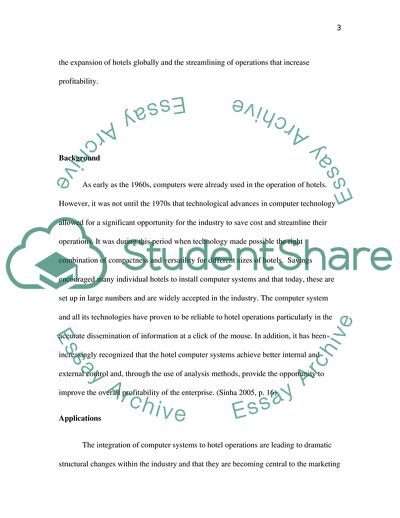Cite this document
(Latest Advances in Hotel Computer Systems Term Paper, n.d.)
Latest Advances in Hotel Computer Systems Term Paper. Retrieved from https://studentshare.org/information-technology/1724988-latest-advances-in-hotel-computer-systems
Latest Advances in Hotel Computer Systems Term Paper. Retrieved from https://studentshare.org/information-technology/1724988-latest-advances-in-hotel-computer-systems
(Latest Advances in Hotel Computer Systems Term Paper)
Latest Advances in Hotel Computer Systems Term Paper. https://studentshare.org/information-technology/1724988-latest-advances-in-hotel-computer-systems.
Latest Advances in Hotel Computer Systems Term Paper. https://studentshare.org/information-technology/1724988-latest-advances-in-hotel-computer-systems.
“Latest Advances in Hotel Computer Systems Term Paper”. https://studentshare.org/information-technology/1724988-latest-advances-in-hotel-computer-systems.


